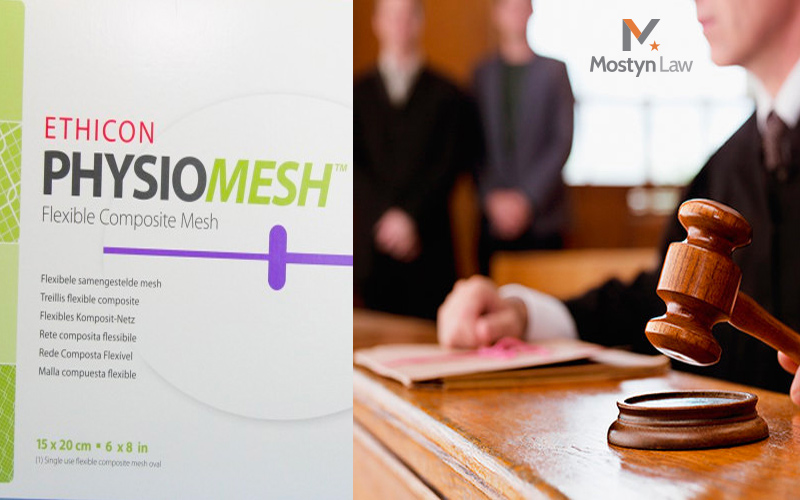On January 12, 2017, Judge Joseph R. Goodwin, the judge presiding over Ethicon MDL 2327 and Nancy Williams v. Ethicon, Inc., et.al., No. 2:12-cv-00511, remanded the Williams case from the United States District Court for the Southern District of West Virginia to the Western District of Missouri, Kansas City Division. Aside from a determination regarding proper venue (to be made by the transferor court), all other pretrial proceedings are complete, including discovery, dispositive motion practice, and Daubert motion practice. In his Suggestion of Remand Memorandum dated January 12, 2017, Judge Goodwin strongly urged the transferor court to set this case for trial as soon as possible and further urged the court to limit the number of trial days, recommending that six (6) to nine (9) days would be adequate.
History of MDL 2327 and Other MDLs Assigned to Judge Goodwin
Judge Goodwin was assigned seven (7) MDLs by the Judicial Panel on Multidistrict Litigation (the “MDL Panel”), including MDL 2327, In re Ethicon, Inc. Pelvic Repair Systems Product Liability Litigation. In total, there are over 58,000 cases filed in the seven MDLs assigned to Judge Goodwin, 28,000 of which reside in the Ethicon MDL. These cases all relate to the use of transvaginal surgical mesh to treat pelvic organ prolapse (“POP”) and/or stress urinary incontinence (“SUI”).
Judge Goodwin originally tried two (2) of the five (5) bellwether cases. Carolyn Lewis, et al. vs. Johnson & Johnson, et al., No. 2:12-cv-4301 and Jo Huskey, et al. v. Ethicon, Inc., et al., No. 2:12-cv-5201. In Lewis, judgment was entered as a matter of law pursuant to Rule 50(a) of the Federal Rules of Civil Procedure, plaintiffs appealed, and the United States Court of Appeals for the Fourth Circuit affirmed the decision. In Huskey, the jury returned a verdict in favor of plaintiffs in the amount of $3,270,000. Defendants appealed, and the appeal is pending before the Fourth Circuit. The other three (3) bellwethers were settled or dismissed prior to trial.
In addition to trying bellwethers, Judge Goodwin has entered orders setting hundreds of cases on an expedited track for individual discovery and motion practice so that those cases, known as Ethicon Waves 1, 2, 3 and 4, could be remanded or transferred in the event they do not settle. In addition to the cases in Waves 1 through 4, Judge Goodwin has indicated that thousands of additional cases will be identified, worked up, and remanded or transferred. He has scheduled a trial involving approximately 25 plaintiffs from West Virginia in March 2017.
Noteworthy Ruling Regarding the FDA 510(k) Process
Judge Goodwin has consistently and repeatedly ruled in transvaginal mesh cases that plaintiffs’ claims are not preempted by the Federal Food, Drug, and Cosmetic Act (“FDCA”), and the general basis for these ruling is as follows. The Medical Device Amendments (“MDA”) to the FDCA contain an express preemption provision which provides that, with respect to medical devices, state law may not impose any requirement “which is different from, or in addition to” the requirements of the FDCA, or any requirement “which relates to the safety or effectiveness of the device or to any other matter included in a requirement applicable to the device under the FDCA.” The transvaginal mesh products in question received clearance under the FDCA’s 510(k) process, which, as the Supreme Court has held, focuses on “equivalence, not safety.” Medtronic, Inc. v. Lohr, 518 U.S. 470, 493 (1996). Thus, the FDCA’s preemption provision does not apply to state law product liability claims regarding medical devices that underwent 510(k) clearance rather than the premarket approval process.
Additionally, Judge Goodwin has consistently ruled that the modest probative value of such evidence is substantially outweighed by the risk of unfair prejudice, specifically, the risk of confusing and misleading the jury. The Fourth Circuit recently affirmed Judge Goodwin’s determination that the probative value of evidence related to 510(k) clearance is substantially outweighed by its possible prejudicial impact and was properly excluded under Rule 403. In re C.R. Bard, 810 F.3d 913, 922 (4th Cir. 2016). The Fourth Circuit credited Judge Goodwin’s concern that subjecting the jury to many hours, and possibly days, of complex testimony about regulatory compliance could lead jurors to erroneously conclude that regulatory compliance proved product safety. In other words, having a “mini-trial” could easily inflate the perceived importance of compliance and distract the jury from the central question before it.

